Long ago, a guy I once met told me that he liked baseball because it reminded him of life itself. For example, having a successful date would begin by first obtaining agreement from a second party that a date shall indeed take place. This, he said, could be thought of as making it to First Base. Hitting Second Base successfully would consist of a jolly night out where charm is served generously to a backdrop of a nice restaurant with dim lighting. Third Base would be the movies, or some such endeavour, while a home run was inexplicably symbolized by the flash of a grin, with a gold-capped molar thrown in for effect.
Upon later reflection, I've found that the Baseball-Life analogy can indeed be a useful way to describe a series of events. However, with the progress of time, the magnitude of significance becomes somewhat recalibrated.
To a man of the family persuasion, First Base would be a successful birth, free from medical complications or feuding between in-laws. Second Base would be decently raising a toddler in circumstances above the poverty line, while Third Base would be ensuring a wholesome education.
And I guess a home run would be when your kid moves out of home.
Heather and I are currently dashing for Second Base, with Baengy strapped on our collective back. One of the biggest difficulties that quickly becomes apparent upon departure from First Base, is that along with unwavering commitment and the warmth of parental care, babies also require a rather sustained ongoing financial contribution. Purchases of nappies, food, clothes, toys and books encroach considerably upon the territory of bank statements once dominated by visits to bars and nice restaurants.
I've been lucky to have had part-time work for around 15 years, beginning as a paperboy for the Messenger Newspaper back in Adelaide, to a restaurant cook in university and various jobs in Korea. While we could probably survive on my graduate student funding alone without the looming threat of scurvy, a little more to supplement the proverbial bread on the table is always helpful. Metaphorically speaking, we, of the Korean Farrand tribe, enjoy a little cheese with our bread.
And sometimes a Gorgonzola, which, incidentally, can be found at Costco.
Luckily, Korea is a busy place and opportunities can be found for those who are looking in the right places. A common way is to teach private English lessons on a part-time basis, but for those who have been around, you can get a job more focused on your particular interests if you have a good bunch of friends who are the right kinds of people. And the good news for me was that the right person happened to be an old housemate of mine, Anthony Nguyen, of surfing/ukelele fame.
Anthony's uncle is a heart surgeon in the US, and after a few meetings, introduced us to shiny new part-time jobs working for Dong-A University Hospital in Busan. We've been working for them since April 2011
We're consultants for the hospital's Clinical Trial Center, with Anthony drawing on his background in finance and me adding background elements of a medical/academic nature. Being a consultant can mean a lot of things, but for us it means doing a lot of English document editing, meeting a lot of industry representatives and networking with copious amounts of beverage.
Because I'm based in Seoul, most of my work is done online, editing manuscripts and preparing medical presentations on behalf of the center's doctors. Every once in a while, we're sent off to a conference or a meeting to represent the hospital and gain further insights. These past few photos are all from our trip to Jeju Island, for the Regional Clinical Trial Center forum.
I had been to Jeju a few times before, but coming as a student and coming as a consultant are two different things. For one, consultants have access to more extravagant cuts of meat.
About once a month we head to Busan for work and family-related purposes. We made it back for a trip that coincided with the fireworks festival some time ago.
Courtesy of Anthony's old apartment, Baengy experienced her first fireworks show. She stared long and hard at the pyrotechnic magic for about three minutes, before losing interest and deciding it was a good time for a nap.
As hospital representatives, we were also sent to Taiwan to attend the Clinical Trial Magnifier Conference. On the plane, I stumbled on some nostalgia - Street Fighter II, Champion Edition on the entertainment system. Back in middle school, we used to play this game religiously.
Unfortunately the difficulty level was locked at 8 stars, and the control pad was not very responsive. Much to the chagrin of the resident middle-school boy still inside me somewhere.
Taiwan is a nice place, and similarly in the midst of burgeoning economic explosion. The Taipei 101 looms above the neighbouring buildings, marking the skyline as some kind of monument to the legacy of affordable plastic toys we all received as kids in Australia.
Although we didn't have a lot of time to get out and about, we did make it to the night markets in the northern sector of Taipei. Here, live snakes were for sale, as medicine.
Markets are very similar in format throughout Asia. Wares are displayed and prices often haggled. As a general rule, they're also good places to buy freshly squeezed juice.
We tried some Taiwanese beer. It tasted a little like Korean beer with a mysterious aftertaste.
It was okay.
Anthony and I also thought it would be nice to visit a temple. Taiwanese Buddhist temples seem to have a lot of red and gold, while Korean temples have a lot more of the aqua-green colour.
The conference consisted of about 250 industry representatives. The man in the photo is Dr William Summerskill, a senior editor for The Lancet (a British medical journal) and a very pleasant man. That title slide in the background is one I made for our director.
Anthony and I delivered presentations on topics related to the Korean clinical trial industry. It seemed to go well.
The conference was fairly good overall, and we exchanged a small fortune in business cards.
Here are some members from our entourage. The man in the middle is Dr Kim, our director and a man of considerable generousity. On the far right is Dr Lee, a rather important individual currently entrusted with US$1 billion in Korean government funding. The pharmaceutical world operates on financial numbers a few orders higher than the normal world.
This dish is a speciality that even some Taiwanese locals have not tried. It's made with the reproductive glands of a male saltwater fish, which, due to their reproductive strategy, are much larger than one might expect. It's served with spring onions and hoisin sauce.
As fluent Konglish speakers would say, "It is believed to be good for the mans."
And this is a bottle of Taiwanese spirits, at 58% ethanol content. It tastes a little like the long lost cousin of soju, sent away for an exotic education in a tropical country.
These fried critters are another speciality called Dragonballs. They're the orbicular muscles of the mouth of squid, fried in batter. The mouths of squid are collected and the beaks discarded before cooking.
The taste was good, although very much like any other part of the squid.
It rained a lot in Taiwan when we were there. A kind of warm, sticky rain, not particularly unpleasant but better if absent. Our time there consisted of dashing into taxis between the hotel and the conference venue.
On the final night, we went to a nightclub near the Taipei 101 called Club Myst. Anthony was particularly fond of this place, although I found it to be a bit noisy and crowded.
 And one of the other tasks we're entrusted with as representatives, is to welcome people from Seoul to the waters of Busan. To do this, we sometimes hire a yacht, complete with onboard booze and a Korean captain. Yachts like these can fit around 20 people, and a guided tour of the surrounding waters will cost around US$900 for two hours. Part of the deal is that Anthony and I are allowed to jump overboard when we're out at sea.
And one of the other tasks we're entrusted with as representatives, is to welcome people from Seoul to the waters of Busan. To do this, we sometimes hire a yacht, complete with onboard booze and a Korean captain. Yachts like these can fit around 20 people, and a guided tour of the surrounding waters will cost around US$900 for two hours. Part of the deal is that Anthony and I are allowed to jump overboard when we're out at sea.
Here are some of the people we took boating last year, from Dr Kim's night classes.
The journeys are very enjoyable, at sunset, allowing us to go under the Gwangali Bridge.
This is the new Dongbaek Island residential development. I think those taller buildings are around 80 floors high.
By now, it may seem that we have a pretty sweet job with the hospital. We do have more than our fair share of fun, but there's also a lot of stress and hard work involved. This past week I edited medical manuscripts, around 100 pages in total. Manuscripts are articles written for academic journals, and tidying them up for submission can be somewhat daunting.
Nonetheless, I'm happy that Anthony's uncle hooked the job up for us. And although I enjoy incessantly annoying him with my sarcastic emailing skills, Anthony is proving to be a good working partner.
Finding good part-time work in Korea depends on a lot of things. It gets easier for those who have lived here longer, because it allows an understanding of the hierarchical nature of the social environment. There are also a few other quirks. Finding work in any of the big cities is best done through people you are close to.
After that, a bit of hard work and a resilience toward exasperatingly illogical situations can also be helpful.
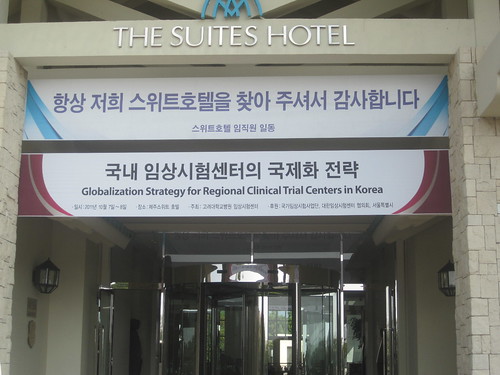


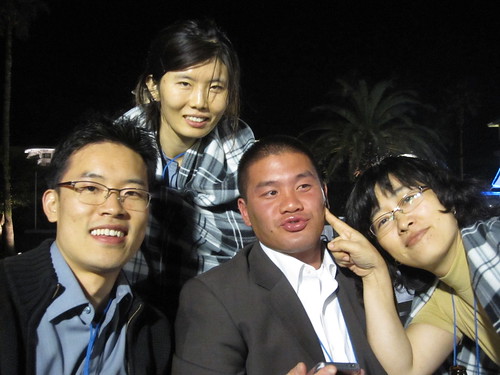
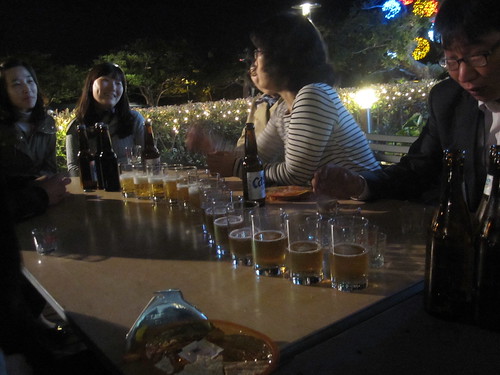
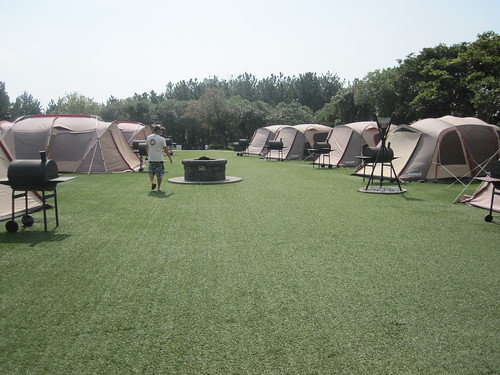
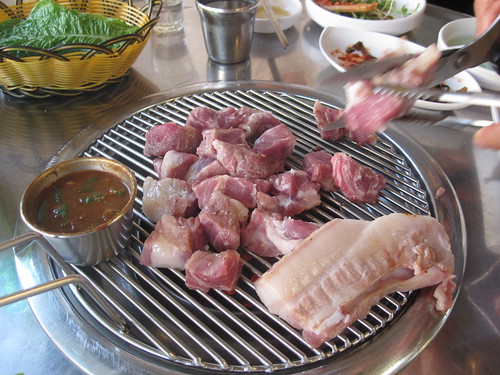
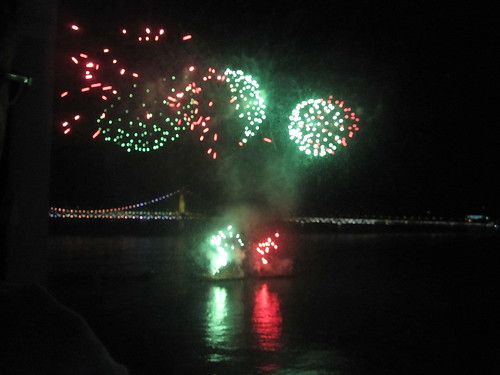


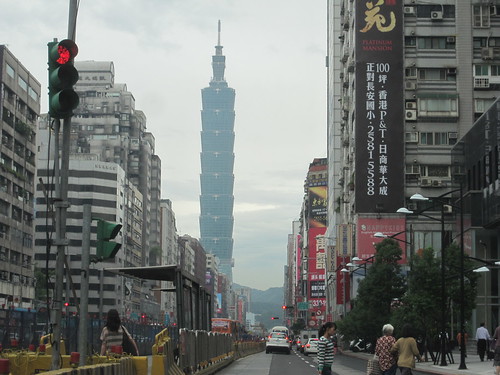
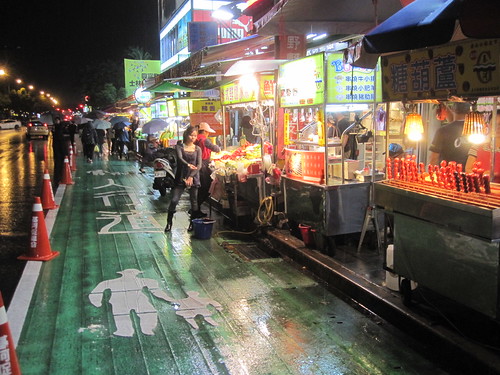
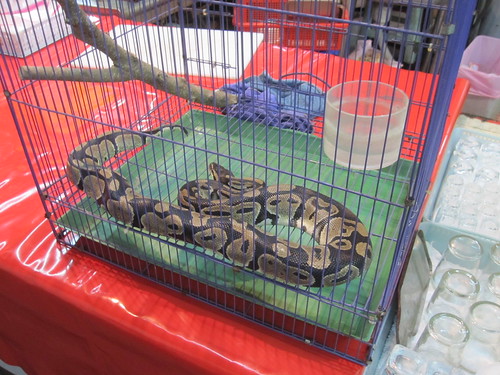

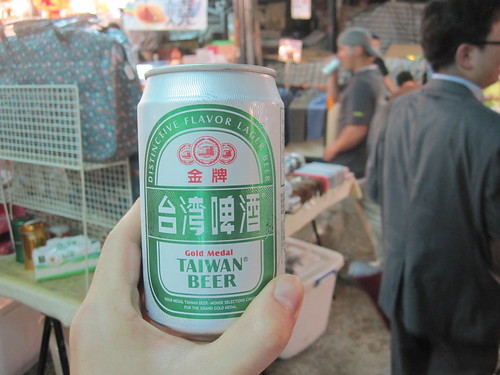
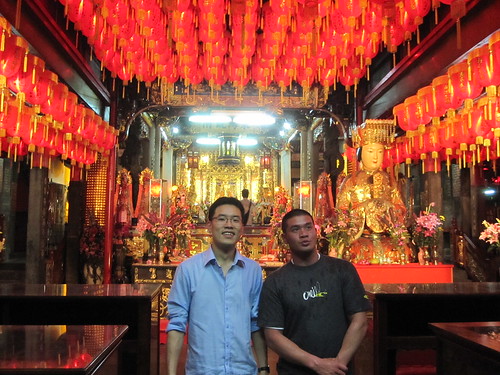
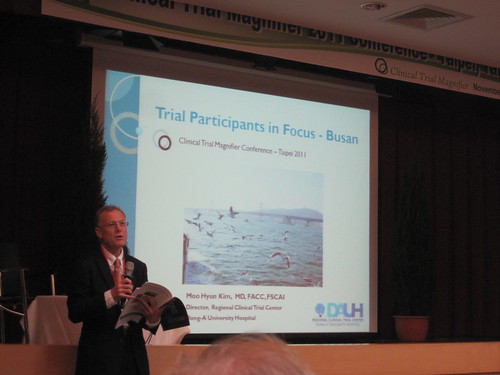
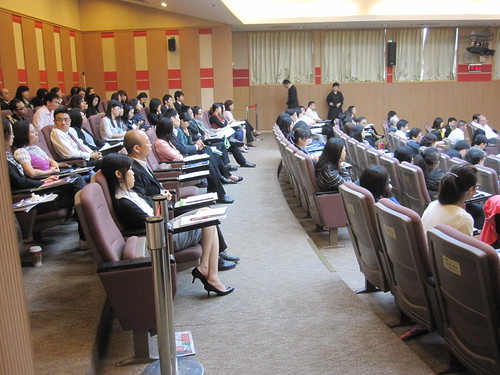

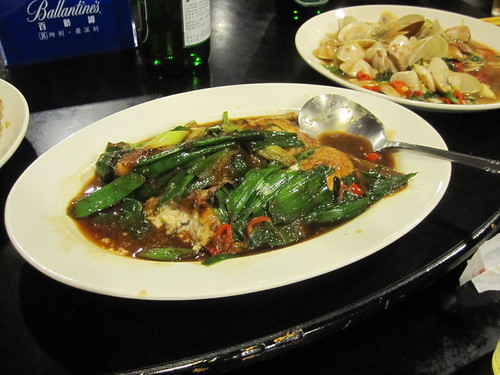
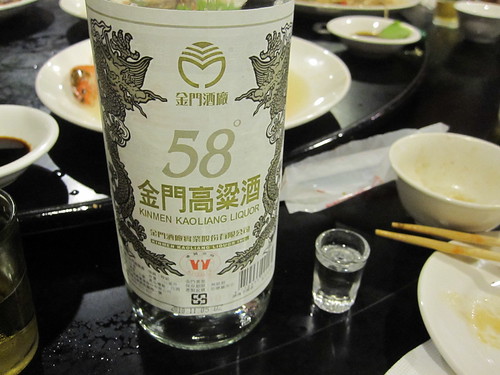
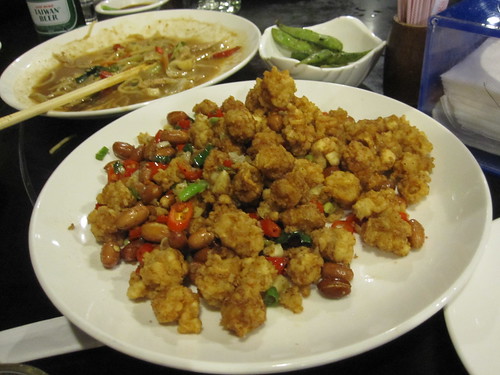

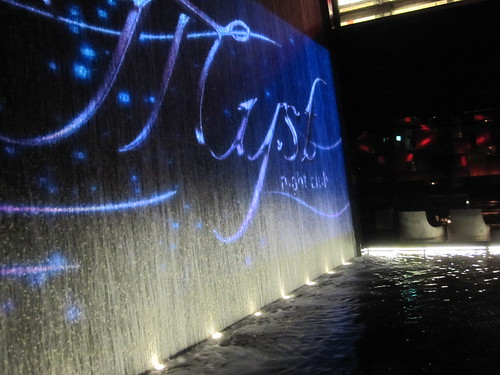





1 comment:
Wow. I also want to have such a wonderful part-time job such as yours.
Post a Comment